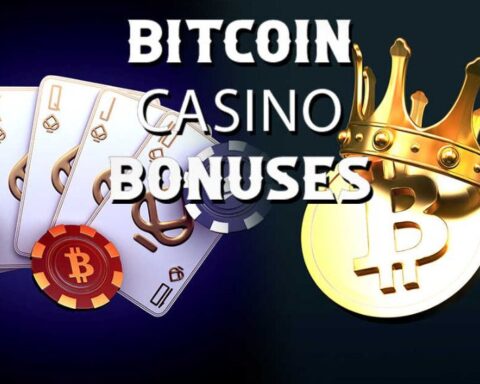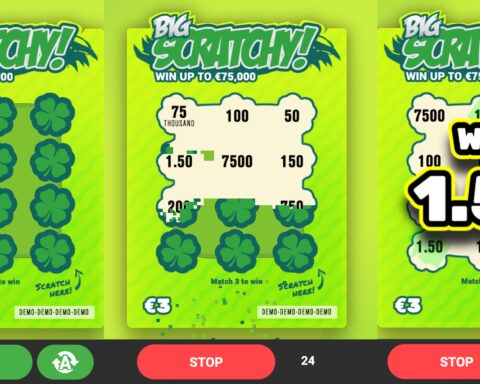A fascinating blend of historical, societal, and cultural influences shapes Canada’s approach to gambling. This nation, recognized worldwide for its hospitality, love for ice hockey, and iconic maple syrup, also boasts a unique gambling history and culture. Today, we venture on a deep dive, scrutinizing the various factors contributing to Canada’s distinctive market.
Popular Traditional Games

Among these traditional games, one withstanding the test of time is ‘Slahal.’ This unique indigenous game, also known as bone or stick game, involved elaborate rituals and large groups. The objective was to correctly guess the location of certain tokens in the opponent’s hand. The communal nature of this game served to strengthen bonds within tribes and served as a conduit for cultural exchange.
Another favored indigenous game was ‘Hubbub.’ Known for its simplicity, it entailed throwing five flat stones into the air and betting on the pattern in which they would land. Hubbub was more than mere entertainment—it was a conduit for transmitting indigenous cultural values and societal norms to younger generations. These traditional games underpin the foundation of Canadian gambling practices, highlighting the importance of community engagement and cultural heritage. Right now, different games are popular, especially on platforms that offer no deposit bonuses to their players.
Historical Roots in Canada
Delving back through time, gambling in Canada traces its roots to the early First Nations people. The indigenous communities engaged in recreational activities, with wagers often placed on contests of skill or chance. Apart from leisure, these games held spiritual and social significance, often embodying communal unity and tribal identity.
Distinct from European traditions, indigenous gambling was not solely an individual pursuit of fortune. Instead, it formed part of a wider social fabric. Community celebrations, tribal rituals, and rites of passage often featured games where bets were made. This ethos, deeply embedded in early Canadian society, continues to resonate in the country’s contemporary practices.
The Rise of Modern Gambling

As we fast forward to the 20th century, the face of Canadian gambling underwent significant transformations. The arrival of European settlers brought with them new types of activities, primarily influenced by their traditions. Lotteries emerged, initially conducted to fund the construction of churches and bridges, thereby linking it with communal development.
By the late 20th century, Canada experienced a boom. This period saw a proliferation of casinos, racetracks, and betting shops, a stark contrast to traditional indigenous games. Modern gambling became more individualized and profit-driven, while the government started viewing it as a lucrative source of revenue.
The Impact of Indigenous Cultures
The impact of indigenous cultures on Canadian gambling practices cannot be overstated. Despite the rise of modern methods, the essence of communal and cultural significance permeates the contemporary scene. Today, it is often seen as a social activity, with people visiting casinos or betting shops in groups, reflecting the communal spirit of traditional games.
Indigenous cultures continue to influence modern gambling through ‘First Nations casinos.’ These establishments, owned and operated by indigenous communities, pay homage to their cultural traditions while also contributing to their economic development. From the inclusion of traditional games to the use of indigenous art and architecture, these casinos stand as a testament to the enduring influence of indigenous culture.
Canadian Attitudes
Canadians, by and large, hold a positive view of it nowadays. Its acceptance in society can be traced back to historical and cultural roots that associate gambling with social bonding, entertainment, and even communal benefits. This normalization has led to the widespread popularity of activities among various age groups and socio-economic strata.
However, it’s crucial to note that while gambling is largely embraced, there’s also a heightened awareness of the potential pitfalls. Canadian society values responsible gambling, with numerous organizations providing support for problem gamblers. This balance between acceptance and caution is a distinctive feature of the Canadian attitude towards this hobby.
Regional Variations in Habits

Despite an overarching national acceptance, regional variations in gambling habits are evident across Canada’s vast geography. Provinces like Quebec, with its French roots, prefer games like roulette and poker, reflecting European influences. On the other hand, provinces such as British Columbia with a significant indigenous population show a preference for local traditional games.
In Alberta and Saskatchewan, the cowboy culture and rodeo popularity translate to a preference for betting on horse racing. Ontario, known for its diverse immigrant population, boasts a broad mix of gambling preferences, reflecting its multicultural demographic. This tapestry of regional differences paints a vivid picture of Canada’s diverse practices.
Government Regulations
The Canadian government’s approach to gambling regulation is another key aspect that shapes the nation’s culture. Traditionally, it was outlawed in Canada. However, this changed in 1969 when amendments to the Criminal Code allowed provinces to oversee and regulate it within their jurisdiction, opening doors to lotteries, casinos, and other forms.
This shift in policy not only stimulated the growth of commercial gambling but also enabled the government to control and monitor activities. Today, provincial regulatory bodies oversee all forms, ensuring fairness, promoting responsible gambling, and using the proceeds to fund community development and public welfare projects.
The Role of Media and Entertainment

In the age of digitalization, media, and entertainment play an increasingly significant role in shaping Canada’s gambling landscape. Gambling-related advertisements are common in television, print, and online media, normalizing and promoting different activities. These promotions often focus on the social and entertainment aspects of gambling, subtly resonating with the communal ethos of traditional games.
The rise of online casino platforms has made gambling more accessible, extending its reach beyond brick-and-mortar establishments. The portrayal in movies, television shows, and online content has further contributed to its societal acceptance. Yet, alongside promotion, media platforms also play a critical role in spreading awareness about responsibility and habits.
Final Reflections
From the communal games of the indigenous cultures to the glitzy modern casinos, the evolution of gambling in Canada offers intriguing insights into how cultural influences shape societal norms. The uniqueness of Canadian gambling practices stems from a confluence of its historical roots, indigenous influences, regional diversity, government policies, and the pervading impact of media and entertainment. As we reflect on these aspects, we understand how integral it has become in Canadian culture, serving as a mirror to its societal values and attitudes.




